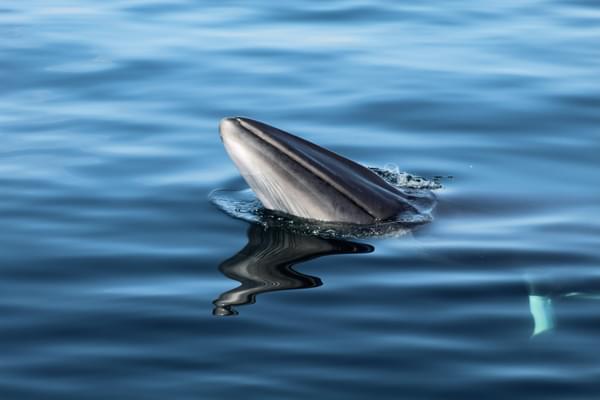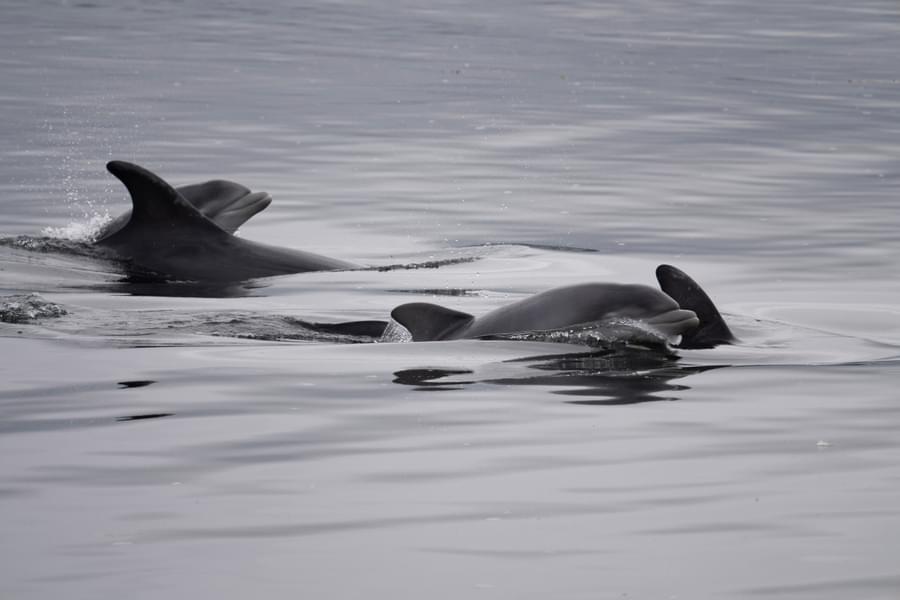As we kick-off 2025, there’s a small mountain of cetacean stories in our inbox, from humpback sightings near Brighton, yet another first-ever-live sighting of a mysterious beaked whale, grieving orcas and a story about just how much we’ve been underestimating the longevity of whales lives. We’ll write these all up over the next few weeks, but we begin with a very current news story that charts the story of one oceans health from good to bad, back to good but now facing some very real threats.
The Guardian reports on the extraordinary biodiversity bounce-back that’s happening in the North Sea. In the 1930s, this was a global hotspot for big game fishing, with bluefin tuna attracted to UK waters by vast herring and mackerel shoals. But a combination of commercial overfishing (herring in particular), pollution, oil and gas exploration and the climate crisis have degraded the seas between Britain, Scandinavia and western Europe, driving declines in all wildlife. Between the 1950s and the 1980s there was an almost inconceivable 97% decline in biomass resulting from herring overfishing.
It's hard to imagine how any biosphere is capable of recovering from such over-utilisation and lack of stewardship. But as we’ve seen elsewhere, nature is quick to bounce-back given the chance. And so, while the reasons are not entirely clear, bottlenose dolphins, along with humpback and minke whales, have been spotted in greater numbers in recent years along England’s North Sea coast.
Without doubt, some of the measures that have been introduced, such as new Marine Protected Areas (MPAs) and increased controls on fishing in recognition of the deteriorating North Sea habitat have had a positive effect.
Other more long-standing measures, such as the EU’s Common Fisheries Policy, put catch limits on some fish species which has resulted in stock recovery.
In April 2024, the UK and Scottish governments announced a ban on commercial sandeel fishing in the North Sea in an effort to help other marine species recover. Sandeels are a leading food source for puffins, kittiwakes and other bird species, many of which are suffering significant population declines. Some conservationists are now even daring to hope that orcas, bluefin tuna and even salmon might begin to make more than just fleeting returns.
Unfortunately, it's not just conservationists who are celebrating the renewed health of the North Sea. Almost inevitably, so is the commercial fishing industry. More fish equals more opportunities to make money. And so a coalition of NGOs has this week filed legal action against the Dutch government, challenging bottom trawling that has been authorised in the Dogger Bank in violation of EU conservation law.
The UK Government has already protected the Dogger Bank by closing it in its entirety in UK waters to fishing with bottom towed gear. By contrast, EU countries are blatantly lagging behind and have refused to agree measures of equal standard for the rest of the Dogger Bank in EU waters.
Emilie Reuchlin, founder and director of Doggerland Foundation said: “The Dogger Bank serves as the nursery for the whole North Sea ecosystem. Protecting this area is vital to restore the exhausted, degraded and polluted North Sea. It is a much needed first step into turning it into a functioning and thriving sea, upon which our lives and societies depend.”
Earlier this year, the NGOs filed an administrative request to demand that the Netherlands revoke fishing permits allowing bottom trawling in the Dogger Bank MPA. Their request was rejected, so they have now escalated the claim by filing a lawsuit with the administrative court in the Hague.

ORCA's work to protect whales and dolphins has never been more important and to help safeguard these amazing animals for the future we need your help. Please support our work by donating at www.orca.org.uk/donate to help us create oceans alive with whales and dolphins

